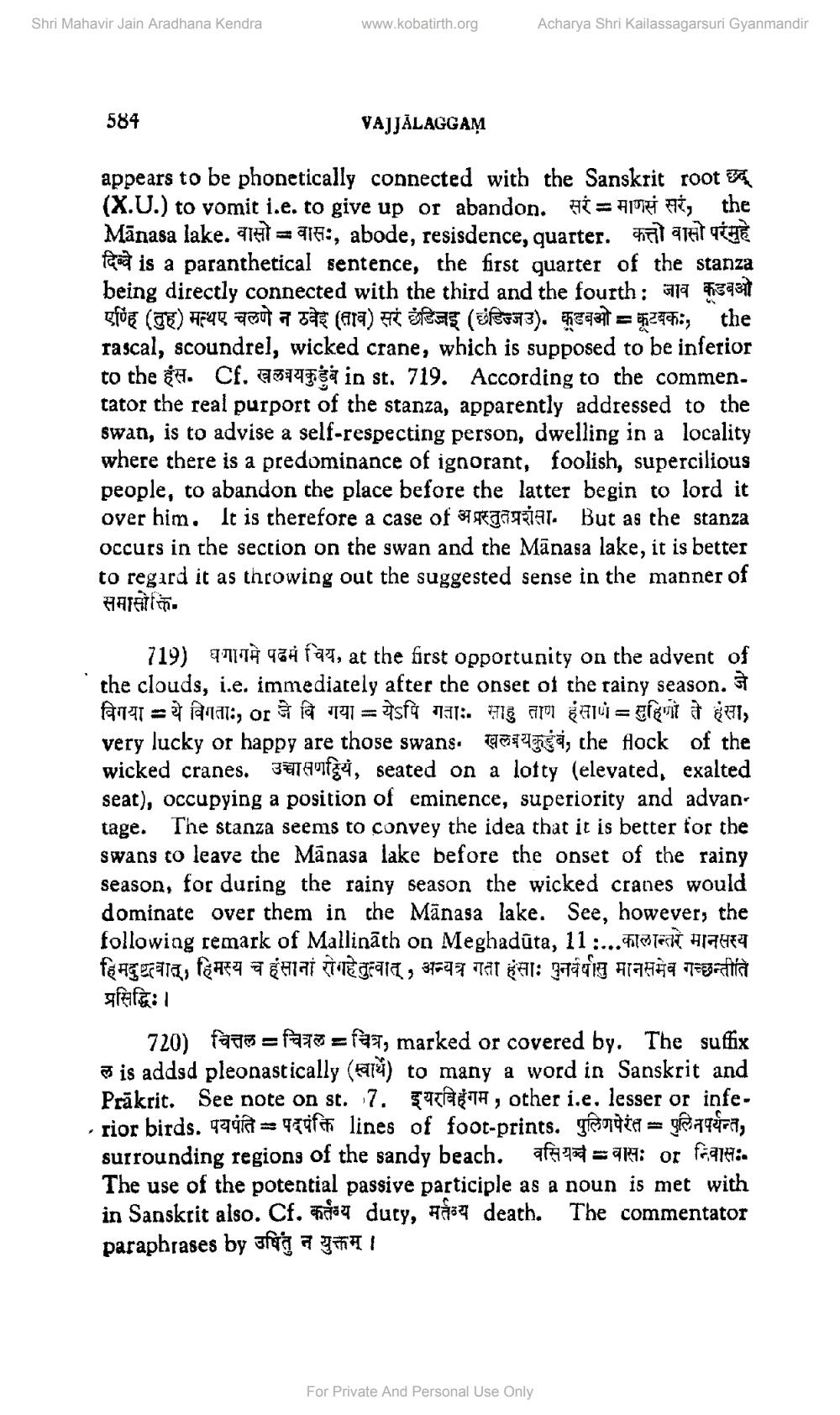________________
Shri Mahavir Jain Aradhana Kendra
www.kobatirth.org
Acharya Shri Kailassagarsuri Gyanmandir
584
VAJJĀLAGGAM
appears to be phonetically connected with the Sanskrit root (X.U.) to vomit i.e. to give up or abandon. H=A10 Ft, the Mānasa lake. 91H = 916:, abode, resisdence, quarter. Till athI TE feed is a paranthetical sentence, the first quarter of the stanza being directly connected with the third and the fourth: 914 Freqsit gloE (DE) #F48 FOUT 7 TE (Ara) Elfa 5 (E53). 9927 = ezechi, the rascal, scoundrel, wicked crane, which is supposed to be inferior to the ea. Cf. 2514758 in st. 719. According to the commen. tator the real purport of the stanza, apparently addressed to the swan, is to advise a self-respecting person, dwelling in a locality where there is a predominance of ignorant, foolish, supercilious people, to abandon the place before the latter begin to lord it over him. It is therefore a case of T FTITAT. But as the stanza occurs in the section on the swan and the Mānasa lake, it is better to regard it as throwing out the suggested sense in the manner of समासोक्ति
719) fa, at the first opportunity on the advent of the clouds, i.e. immediately after the onset of the rainy season. It विगया ये विगताः, or जे वि गया = येऽपि गताः. साहु ताण हंसाणं = सुहिणी ते हंसा, very lucky or happy are those swans. 0312950, che flock of the wicked cranes. 3#Tangu, seated on a lotty (eleyated, exalted seat), occupying a position of eminence, superiority and advantage. The stanza seems to convey the idea that it is better for the swans to leave the Mānasa lake before the onset of the rainy season, for during the rainy season the wicked cranes would dominate over them in the Mānasa lake. See, however, the following remark of Mallināth on Meghadüta, 11:... filosterit HlaHE4 हिमदुष्टत्वात्, हिमस्य च हंसानां रोगहेतुत्वात् , अन्यत्र गता हंसाः पुनर्वासु मानसमेव गच्छन्तीति
: 1
720) fana = faza = fan, marked or covered by. The suffix is addsd pleonastically (Fall) to many a word in Sanskrit and Prākrit. See note on st. 7. CATATA , other i.e. lesser or infe- rior birds. qgola = 4cafeti lines of foot-prints. giesmaiarygtert, surrounding regions of the sandy beach. वसियचे = वास: or निवास:The use of the potential passive participle as a noun is met with in Sanskrit also. Cf. fidaa duty, faza death. The commentator paraphrases by gfe agili
For Private And Personal Use Only




